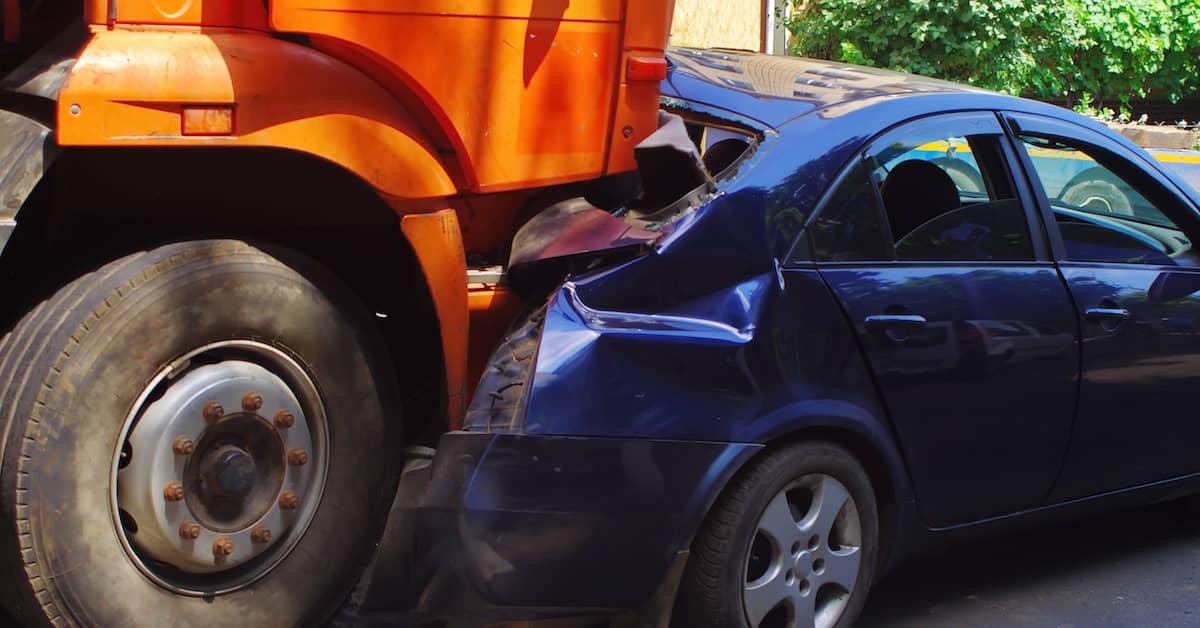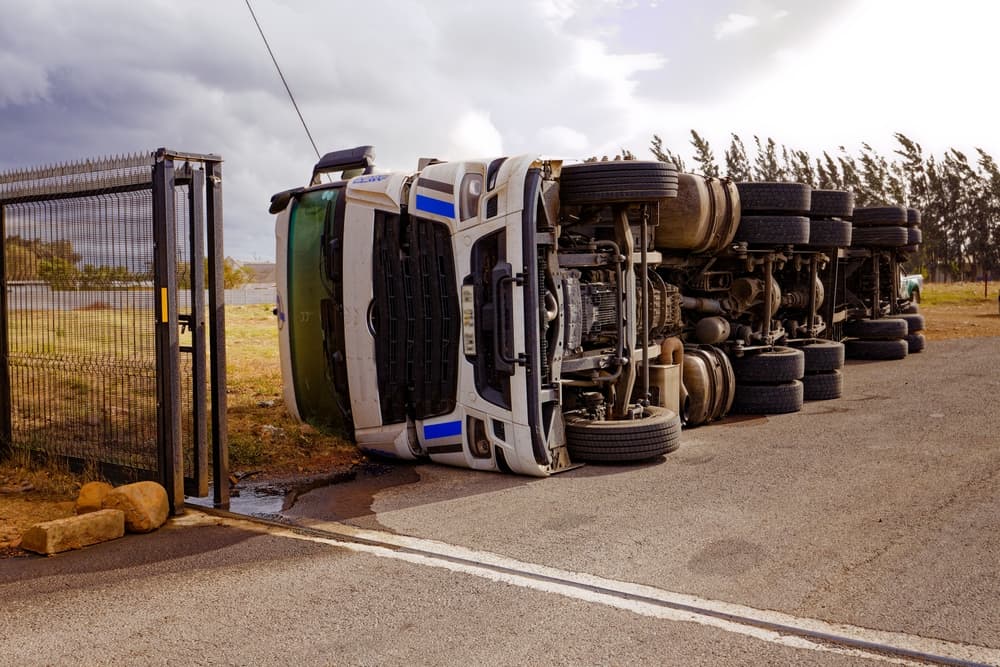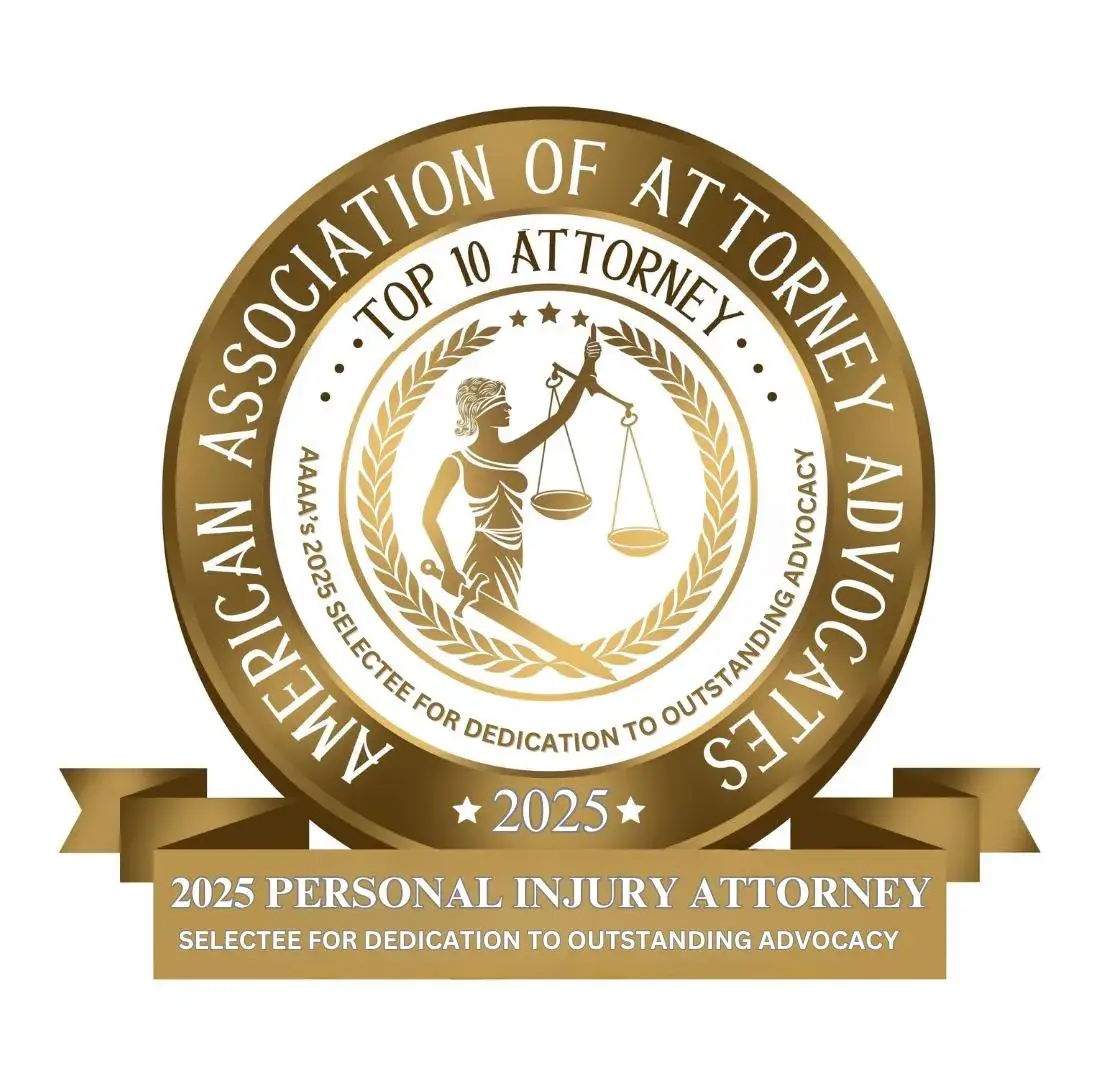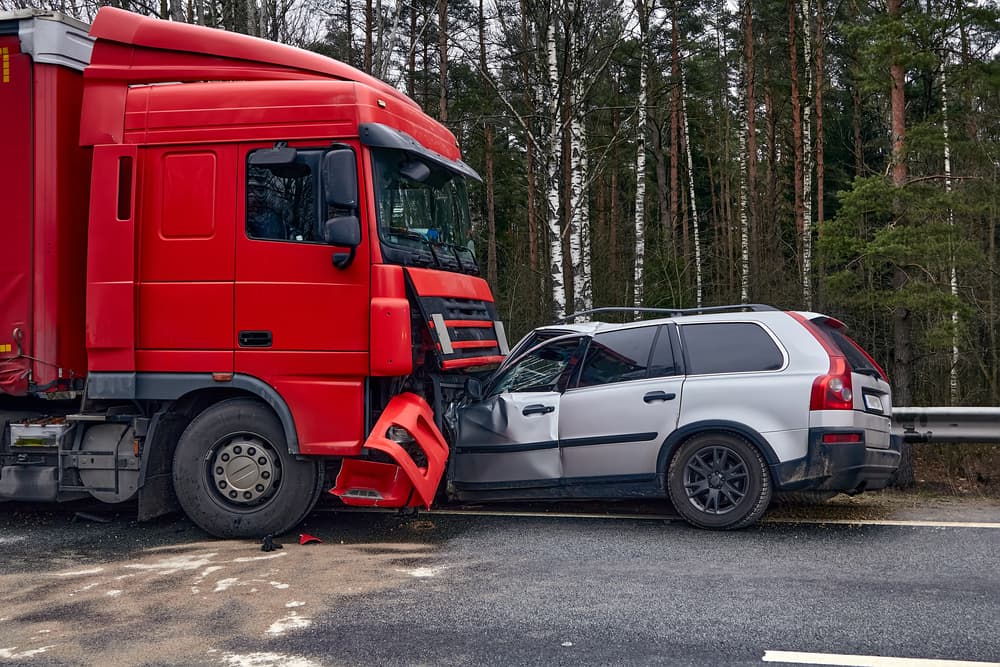
What to Do if My Car Is Totaled in a Collision with a Commercial Truck
It can happen in a fraction of a second on the I-95 corridor, the New Jersey Turnpike, or a busy Bronx thoroughfare. An impact with an 80,000-pound commercial truck leaves a passenger vehicle a mangled wreck. For the driver who survives the initial collision, the ordeal is far from over. Days or weeks later, a call from an insurance adjuster delivers the expected, yet still devastating, news: the car is a total loss.
This declaration is more than an assessment of damaged steel; it’s a critical turning point. For victims of a commercial trucking accident, a “total loss” claim is not a standard insurance transaction. It is the beginning of a complex and often overwhelming confrontation with a powerful corporate industry, where the rules are different, the evidence is fragile, and the stakes for your financial and physical recovery are infinitely higher than in a typical car-on-car collision.
What you do in the days and weeks that follow can have a significant impact on the strength of your case and the compensation you secure.
Your First and Most Important Job: Your Health
Before we talk about insurance, legalities, or the value of your car, we need to talk about you. In the chaos of an accident, adrenaline can be a powerful anesthetic. It can mask serious injuries, making you feel “shaken up” but otherwise okay. Days later, however, the true extent of the damage to your body may begin to reveal itself.
- See a Doctor, Even if You Think You’re Fine: If you haven’t already had a thorough medical evaluation since the accident, make an appointment immediately. Whiplash, concussions, spinal injuries, and internal damage can have delayed symptoms. Explain exactly what happened and describe every ache, pain, or unusual feeling you are experiencing.
- Follow Medical Advice to the Letter: Your doctor may prescribe medication, physical therapy, chiropractic care, or rest. It is critically important that you follow their instructions precisely. Attend every appointment. Do your prescribed exercises. Fill every prescription. Not only is this essential for your physical recovery, but it also creates a clear and undeniable record of your injuries and your commitment to getting better—a record that will be crucial later.
- Keep Meticulous Records: Start a folder or a notebook. In it, keep every medical bill, receipt for prescriptions, explanation of benefits (EOB) from your health insurance, and doctor’s note. Track your mileage to and from appointments. Keep a simple journal detailing your pain levels, your physical limitations, and how your injuries are affecting your daily life. Can you no longer pick up your child? Does standing to cook a meal cause excruciating back pain? Are you unable to sleep through the night? Write it all down. It may feel tedious, but this documentation is a powerful tool.
Understanding a “Total Loss” and Your Vehicle
When an insurance company declares your car a “total loss,” it’s a financial calculation, not an emotional one. It simply means that the estimated cost to repair the vehicle is more than its “Actual Cash Value” (ACV) right before the crash.
The insurance adjuster—likely from the trucking company’s insurance—will make you an offer based on their assessment of your car’s ACV. This is the first of many moments where you need to be your own best advocate.
- Don’t Immediately Accept the First Offer: The adjuster’s job is to resolve the claim for the lowest possible amount. Their initial offer may be—and often is—less than what your vehicle was actually worth.
- Do Your Own Research: Use resources like Kelley Blue Book, Edmunds, and NADA guides to determine the value of your car. Look at local online listings for the same make, model, year, and condition. Find several comparable vehicles for sale in our area. This gives you a realistic market value to counter their offer.
- Factor in Upgrades and Condition: Did you just put on new tires? Was your car in pristine condition? Did it have a premium sound system or other aftermarket upgrades? Provide receipts and proof of these to the adjuster to argue for a higher value.
- Negotiate: You have the right to negotiate the settlement amount for your car. Present your research calmly and firmly. If they refuse to offer a fair value, you can consider invoking the “appraisal clause” in your own insurance policy or hiring an independent appraiser.
- Remember Your Personal Belongings: Before you sign over the title and release the vehicle to the insurance company, make absolutely sure you have retrieved all your personal items from the car.
The Big Difference: Why a Truck Accident Isn’t Like a Car Accident
This is perhaps the most critical thing to understand in the weeks following the crash. Dealing with a commercial truck accident is fundamentally different and vastly more complex than a typical fender-bender. You are not just dealing with another driver; you are up against a large, well-funded corporation and its powerful insurance company.
Their goal is singular: to protect their assets and pay out as little as possible. The moment the accident happened, their response team was likely activated. They have a well-oiled machine of investigators, adjusters, and lawyers dedicated to minimizing their liability.
The insurance adjuster from the trucking company may call you. They may sound friendly, caring, and concerned. They are not your friend.
- Be Extremely Cautious: You are not obligated to give them a recorded statement. In fact, you should politely decline to do so. They are trained to ask questions in a way that can get you to inadvertently admit partial fault or downplay your injuries. A simple “I’m not feeling well enough to discuss this right now” is a complete and acceptable answer.
- Don’t Sign Anything: They may offer a quick, low settlement and ask you to sign a release. Do not sign any documents without having them reviewed by a legal professional who is on your side. Signing that paper could permanently waive your right to any future compensation, even if your injuries turn out to be far more severe than you initially thought.
Trucking companies are required by federal law to carry high-limit insurance policies, often worth millions of dollars. This is because the damage they can inflict is so catastrophic. But it also means their insurance carriers will fight tooth and nail to avoid paying on those policies.
The Race to Preserve Crucial Evidence
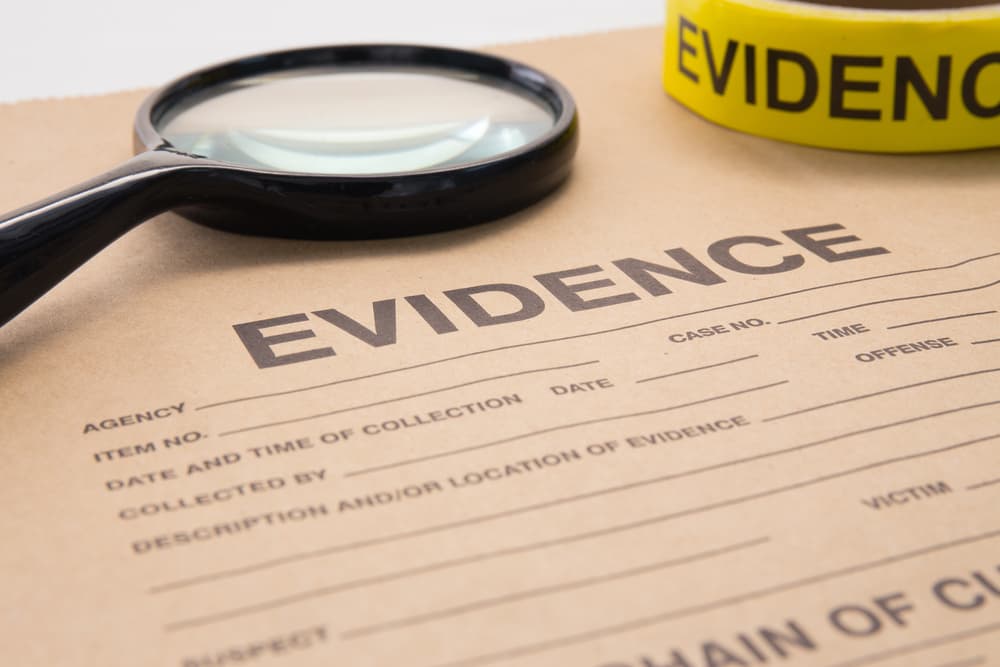
While you have been focused on your doctor’s appointments and the fate of your car, a quiet and urgent battle over evidence is taking place. In a truck accident case, the police report is only the beginning of the story. The real truth is often hidden in records that the trucking company controls.
This evidence is essential to proving why the crash really happened. It can include:
- The Truck’s “Black Box” (ECM/EDR): This device records critical data about the truck’s speed, braking, RPMs, and other operational details in the moments leading up to and during the crash.
- Driver’s Logs: These show how many hours the driver was on the road. Was the driver dangerously fatigued and in violation of federal Hours-of-Service regulations?
- Maintenance and Inspection Records: Was the truck properly maintained? Were its brakes, tires, and lights in good working order, or did a mechanical failure contribute to the crash?
- Driver’s Qualification File: Did the company do a proper background check? Did the driver have a history of reckless driving or previous accidents? Were they properly trained?
- Post-Crash Drug and Alcohol Test Results: These are mandatory after most serious commercial vehicle accidents.
This evidence is fragile. Records can be “misplaced,” and data can be overwritten. An experienced legal team knows how to immediately send a “spoliation letter” to the trucking company, a formal legal demand that they preserve every single piece of this evidence. This is a step that can make or break a case, and it must be done quickly.
Calculating the True Cost of Your Losses
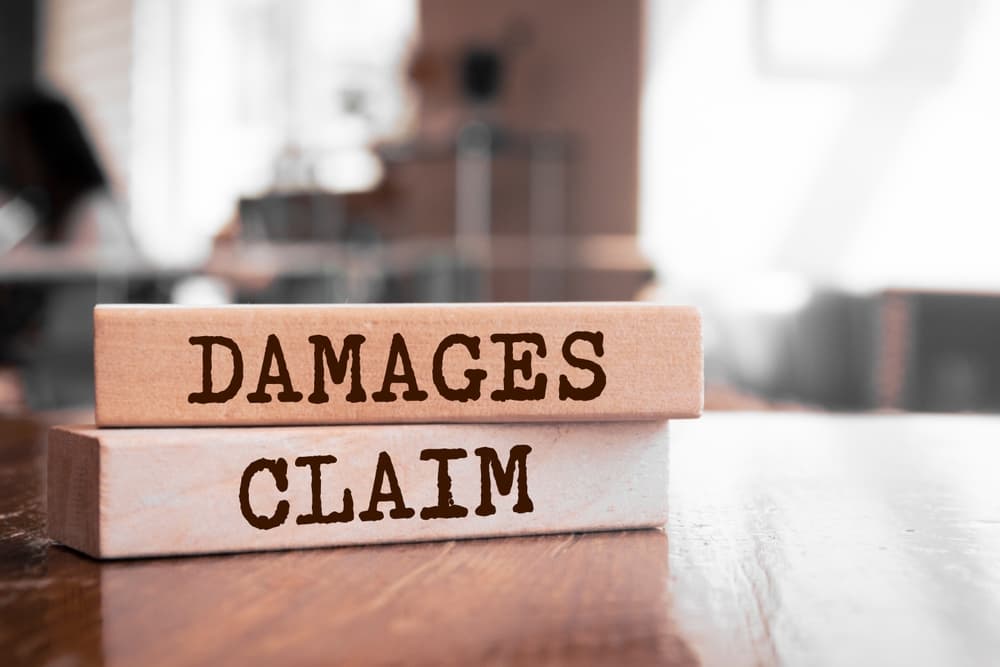
The totaled car is the most visible loss, but it is often just the tip of the iceberg. Your true damages are far more extensive, and you have a right to be compensated for all of it. These losses generally fall into two categories:
- Economic Damages: These are the tangible, calculable financial losses.
- All Medical Bills: This includes everything from the initial ambulance ride and emergency room visit to future surgeries, physical therapy, medications, and any necessary home modifications or assistive devices
- Lost Wages or Income: If you’ve been unable to work, you are owed the income you have lost.
- Loss of Future Earning Capacity: If your injuries are permanent and prevent you from returning to your previous job or working at all, you can be compensated for the income you will lose over the course of your lifetime.
- Property Damage: This covers your totaled car and any other property damaged in the crash, like a laptop, cell phone, or car seat.
- Non-Economic Damages:These are the intangible but very real human losses. They compensate you for the profound impact this event has had on your life.
- Pain and Suffering: This is compensation for the physical pain, discomfort, and trauma you have endured and may continue to endure.
- Emotional Distress: This includes the anxiety, depression, fear, and post-traumatic stress that often follow a violent accident.
- Loss of Enjoyment of Life: Have your injuries stopped you from playing with your kids, participating in a hobby you love, or simply living your life without pain? This acknowledges that loss.
- Loss of Consortium: In some cases, a spouse can be compensated for the loss of companionship, support, and intimacy resulting from their partner’s injuries.
The trucking company’s insurer will not offer to pay for these things. It is up to you and your advocates to document, prove, and demand fair compensation for the full scope of your losses.
You Don’t Have to Face This Giant by Yourself
The path we’ve described is complex, demanding, and exhausting. Trying to navigate it while you are also trying to heal from serious injuries is nearly impossible. This is not a fight you should have to wage on your own.
At Maggiano, DiGirolamo & Lizzi, we stand with the person next door. We represent families in Fort Lee, Hackensack, the Bronx, and all the surrounding communities who have had their lives turned upside down by someone else’s negligence. Our entire mission is to level the playing field so that your voice is heard and you are justly compensated for everything you have lost.

Our truck accident lawyers know the federal regulations, we know the tactics the trucking companies use, and we know how to uncover the evidence that proves their fault. When you work with us, you don’t just get a lawyer; you get a dedicated team of over 30 professionals who treat your case as if it were our own. We stand in your shoes, learn everything about your life before and after the accident, and build a case that tells your unique story.
We handle these cases on a contingency fee basis. That means we do not get paid a single dollar in attorney’s fees unless and until we win your case. We cover all the upfront costs of litigation, from hiring experts to court filing fees. There is no financial risk to you.
Your car may be gone, but your future is not. You have the right to heal, the right to be heard, and the right to justice. Contact Maggiano, DiGirolamo & Lizzi today at (201) 585-9111 or through our online form for a free, no-obligation consultation to understand your rights and your options. We are here to help you take the next step.



